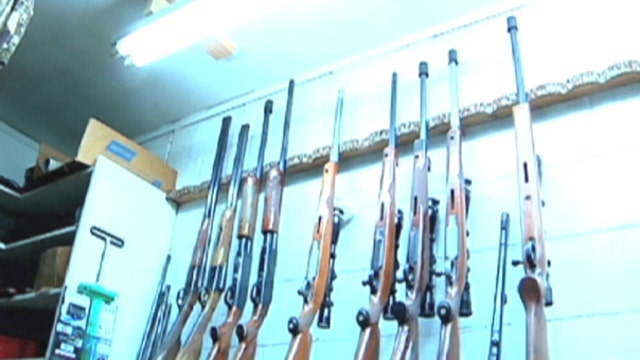Custom Made Guns Bring in Big Bucks
David Miller of Tucson, Az., has turned a longtime love of hunting into a custom rifle-making business recognized by enthusiasts around the world. The gunsmith, 72, is completely self-taught. He studied up on how to assemble firearms in his spare time while working a construction job, until finally turning his hobby into a business.
“I knew when I was a kid that I was going to do this. It’s just something that was inside me…but I knew that in order to do that there were a lot of things I had to learn,” said Miller.
Miller teamed up with partner, Curt Crum, 40 years ago to take the business to the next level. The David Miller Gun Company is comprised solely of the two gunsmiths, who create what some consider the finest hunting rifles in the world.
“We don’t just build an object that from the outside you go wow that’s pretty…it’s when you take it apart that you see everything,” said Crum.
The hand-crafted hunting rifles typically range between $35,000-$100,000 but can get even pricier.
“We did one in ’82 and it sold for $41,000 and at the time that was a new world record. And then it ’86, we sold one for $201,000 and that was a new world record. We’ve been pretty instrumental in putting a different look on this custom building,” said Miller.
The duo has built a loyal following in the hunting world by showing their rifles at the Safari Club International Convention every year.
The company’s rifles are used to hunt animals in regions all around the world- some that can be deadly. Both Miller and Crum insist the safety and reliability of the rifles are what keep customers coming back.
“We don’t ever want to hear that one of our rifles caused a death… from a malfunction. And I think that’s where our reputation started. We don’t have any problems [with our guns]. I can’t tell you about your hunting boots because I don’t make ‘em… but the rifles? We know what we’re doing,” Miller told FOXBusiness.com. Miller says the attention to detail is what keeps his shop open for business.
“If there was machinery that could do it, we’d be in trouble because the big manufacturers would whoop our butts every time. But at the end of the day… the very finest end product has got a lot of hand work in it,” said Miller.




















